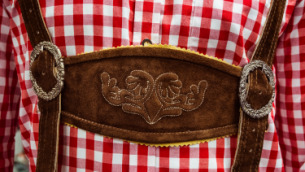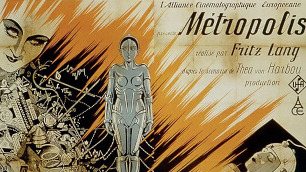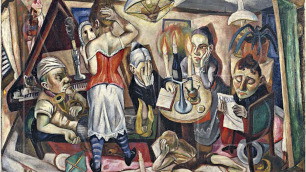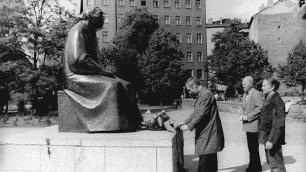| Jana: | Hallo Michael! |
| Michael: | Hallo, da sind wir wieder. Jana, wie geht es dir? |
| Jana: | Wunderbar! Wir sprechen heute über ein Lieblingsthema von mir. |
| Michael: | Das ist schön. Ist es zufällig das Thema Kunst? |
| Jana: | Genau! Und in der Grammatik besprechen wir heute das Perfekt. |
| Michael: | The present perfect. Meinst du, das ist einfach oder schwer? |
| Jana: | Na, das ist einfach. Just like in English, the present perfect is built with a helping verb: Either to have or to be. I have read the news. |
| Michael: | Alles klar. Haben oder sein. Ich habe die Nachrichten gelesen. |
| Jana: | Richtig. Wir haben das schon in Episode 20 gehabt mit der Frage: Welchen Film hast du gesehen? We should note that it requires the past participle, called Partizip II, at the end of the sentence. In this context, it’s helpful to know that a lot of the past participles in German are constructed with the prefix ge-, like lesen, gelesen, essen, gegessen and so on. But some verbs also change vowels, as in trinken, getrunken, or they end with a -t: haben, gehabt, machen, gemacht. |

























